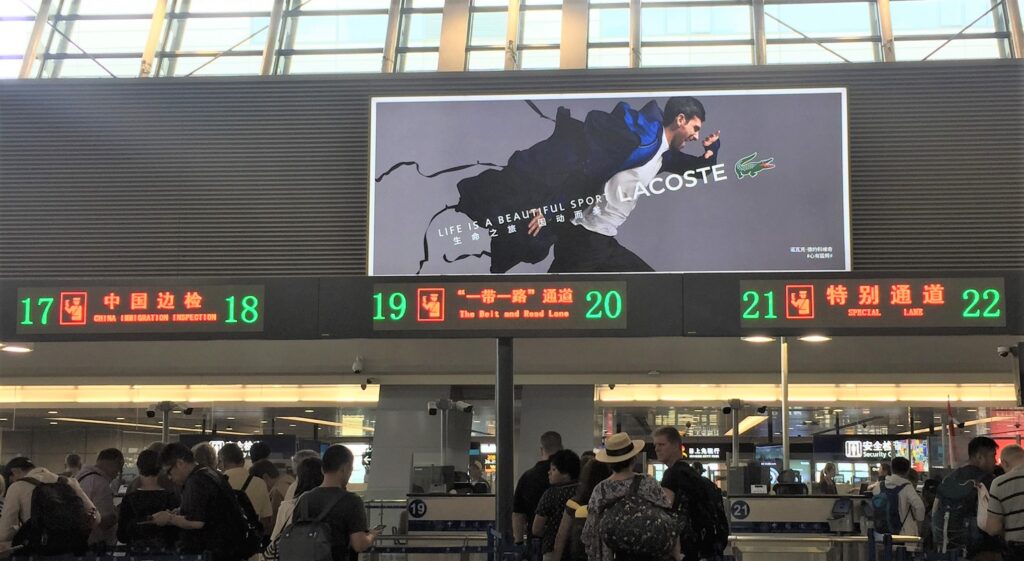A forthcoming chapter by Qiao Liu

How does the Chinese system deal with supervening impediments to contract performance? In this article (draft), I address this question from the angle of the (unbalanced) interrelationship between two doctrines: the doctrine of force majeure (不可抗力) and that of change of circumstances (情势变更). The imbalance can be readily seen from the current judicial data showing that the doctrine of force majeure has been applied by Chinese courts ten times more often than the doctrine of change of circumstances. This article offers explanation to the reasons and implications of this striking situation.
It first briefly traces the history of the two doctrines and makes three inquiries about their interrelationship. First, do they address different events? It is noted that there is a general tendency in China to categorically characterise certain events, including the COVID-19 pandemic, as force majeure. This tendency, which neglects or downplays a proper assessment of the event’s actual or potential impact on the performance of the particular contract, is rejected in this article. I discuss various elements of the two doctrines such as the tripartite ‘unforeseeable, unavoidable and insurmountable’ requirements and the ‘non-commercial risk’ requirement, as interpreted and applied in Chinese cases or judicial documents. I conclude that all these elements are intrinsically interwoven with the particular parties and contracts and must be ascertained as such. For example, ‘commercial risks’ should be understood as no more than ‘inherent’ or ‘normal’ risks and therefore depend on the particular parties and contract for ascertaining the scope of ‘inherency’ or ‘normality’. Although this requirement seems to be reserved for the doctrine of change of circumstances, the same requirement is captured by the requirements for ‘unforeseeable, unavoidable and insurmountable’ under the doctrine of force majeure. Similarly, the latter requirements should equally be applied under the doctrine of change of circumstances. In this sense, there is a relationship of homogeneity between the two doctrines.
The second inquiry moves on to explore the different ‘contract impact’ tests applied under the two doctrines. The doctrine of force majeure encompasses two such tests: whether the event results in a situation that the affected party ‘cannot perform’ its side of the contract (the ‘cannot perform’ test) or whether the event renders the purpose of the contract ‘unfulfillable’ (the ‘contract purpose’ test). The doctrine of change of circumstances, since the enactment of the Civil Code, endorses a single test: whether the event renders continuing performance of the contract ‘manifestly unfair’ to a party (the ‘manifest unfairness’ test). This is a critical point of division between the two doctrines – they are distinguished in their respective ‘contract impact’ test(s). One problem in Chinese judicial practice is that excessive use has been made of the ‘cannot perform’ test, which is further discussed in the article. More detailed discussion of the other two tests is left to future research.
The third and final inquiry concerns the differing legal consequences attached to the two doctrines. The most notable remedial difference between the two doctrines is that contract adaptation (or modification) is available only under the doctrine of change of circumstances. This article reviews the general principles/rules for contract adaptation and its relationship with contract renegotiation. In particular, contract adaptation is distinguished from ‘exemption of liability’, which is a unique remedial consequence attached to force majeure, in that contract adaptation varies primary obligations under the contract whilst ‘exemption of liability’ affects secondary obligations only. However, there remains ambiguity as to the meaning of ‘exemption of liability’ which in practice has led to increased discretion.
The second half of the article attends to cases involving a contract affected by COVID-19, bringing the discussion above to a specific context. Cased decided and judicial documents issued by Chinese courts (especially the Supreme People’s Court) concerning SARS and COVID-19 (for a more detailed outline of Covid-19 judicial documents, see Qiao (2020)) are analyzed. I argue that a wider reception of the doctrine of change of circumstances can be observed from COVID-19 documents and should be encouraged. A categorical characterisation of COVID-19 as force majeure should be avoided. Which of the two doctrines is best to be applied in a particular case should be left to be determined through the ‘contract impact’ tests.
It is also observed that from the SARS pandemic to the COVID-19 pandemic, both the meaning and role of the ‘cannot perform’ test have undergone some transformation. The SARS cases are dominated by a narrow understanding of the ‘cannot perform’ test by unduly excluding cases where a party ‘can’, but decides not to, perform the contract. COVID-19 cases, on the other hand, display the revival of a broad interpretation, which equates ‘cannot perform’ with a ‘failure to perform’. Unfortunately, in practice, mostly due to the undisciplined extension of ‘exemption of liability’, the ‘cannot perform’ test has been much overused and abused. This article thus calls for a more structural and coherent approach to the allocation of work between the two doctrines.
Professor Qiao Liu’s article Force Majeure or Change of Circumstances: An Enduring Dichotomy in Chinese Law? is a chapter in The Making of the Chinese Civil Code – Promises and Persistent Problems, forthcoming with Cambridge University Press in September 2023. Find a draft here.
Qiao Liu is Professor and Deputy Director of the Centre for Chinese and Comparative Law, School of Law, City University of Hong Kong; Honorary Professor, TC Beirne School of Law, University of Queensland; Adjunct Chair Professor, School of Law, Xiamen University. The work described in this paper was fully supported by a grant from the Research Grants Council of the Hong Kong Special Administrative Region, China (Project No. 11608821).

